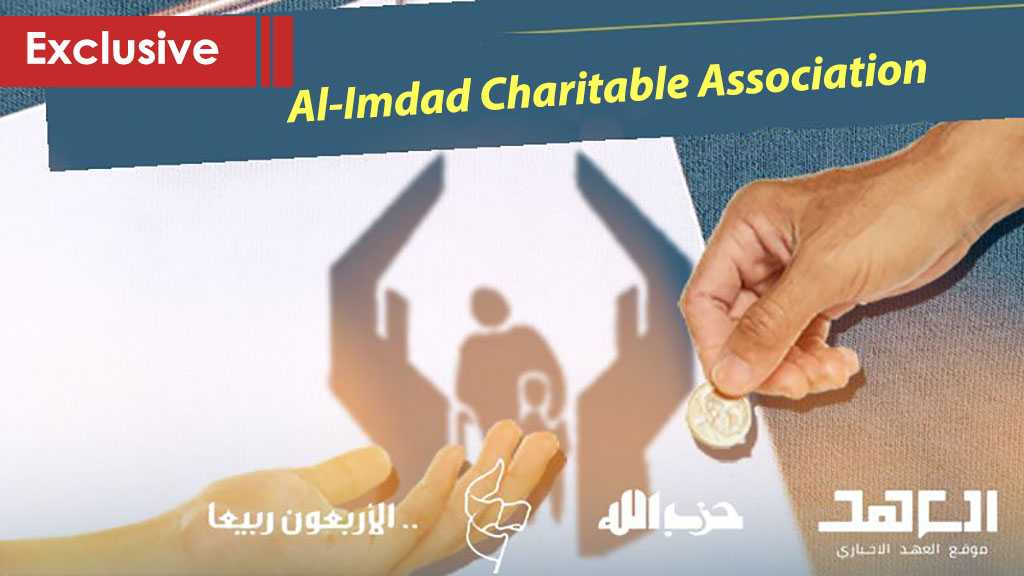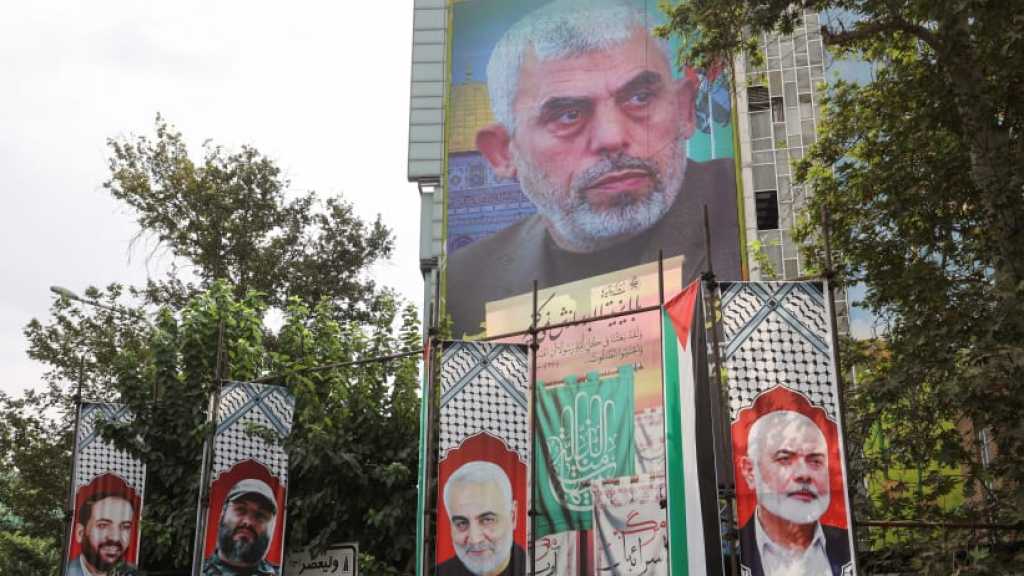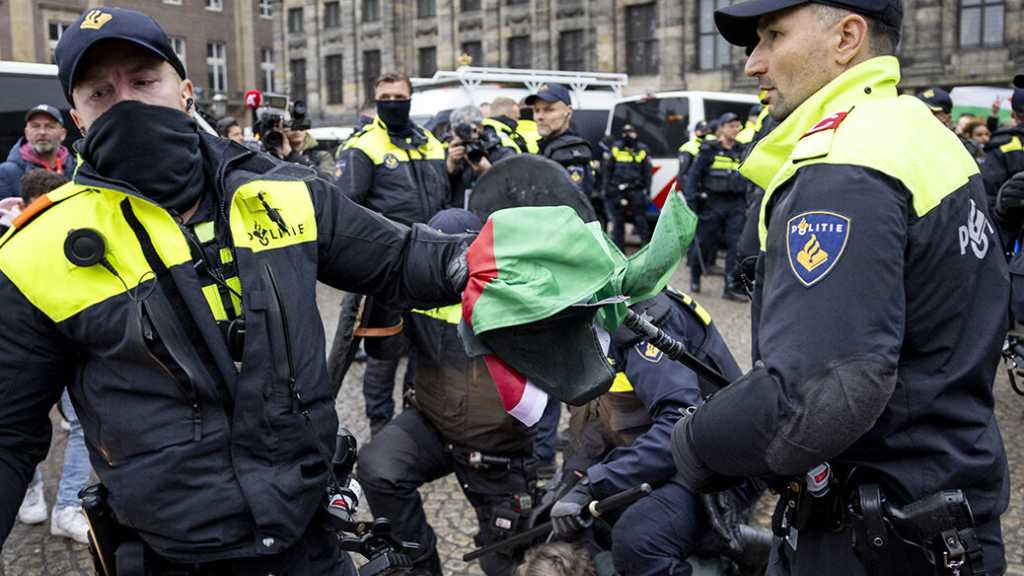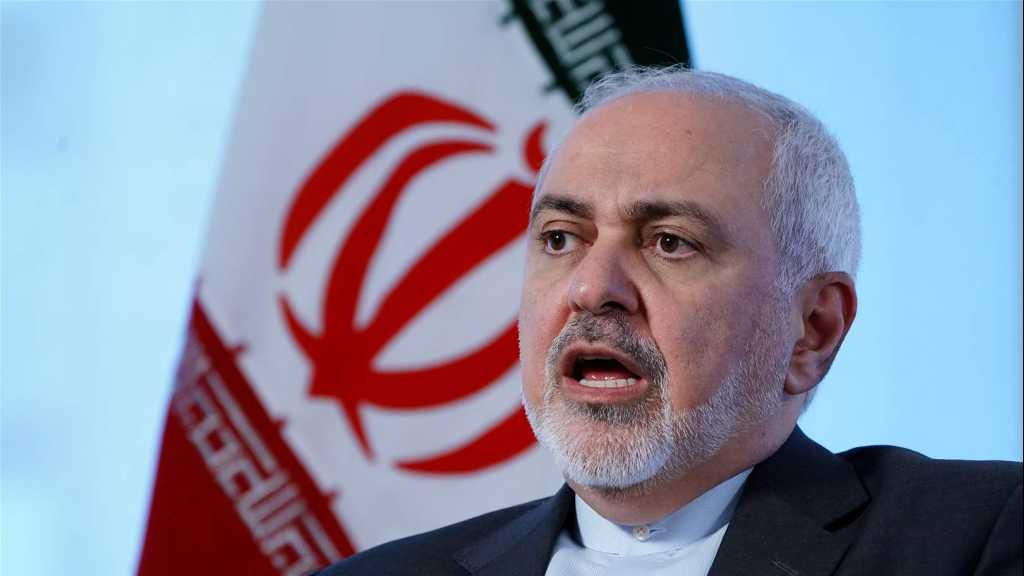Al-Imdad: A Solid Humanitarian Infrastructure

By Latifa Al-Husseini
Little has changed since Lebanon’s independence. The country has been living from crisis to crisis. In 1982, poverty rates spiked amid the “Israeli” occupation and internal strife. But hope remained. There was no abandoning the poor, no matter how severe the calamities.
In the 1980s, pressure was mounting on the Lebanese people. The local currency was collapsing and conflicts were rampant. The Islamic Republic of Iran was there, enquiring about the conditions of the poor. It decided to answer their pleas.
“Go to Lebanon and see what my children want,” said Imam Khomeini. And so, the Al-Imdad Association was born and began embracing vulnerable families.
Hajj Muhammad Berjawi, the Director General of the Al-Imdad Charitable Association, spoke to Al-Ahed News about the organization’s modest beginnings, the evolving circumstances, and the many challenges. He recalls the early days and the many that followed, and tells us about how the association works, and what it offers.
"We were living through difficult economic times in mid-1986 – the collapse of the Lebanese pound, a Zionist war against our country, and internal conflicts between forces in the eastern and western areas.
At that time, people were no longer able to buy food, so hundreds of letters were sent to Imam Khomeini asking for help. Despite the siege and the war imposed on Iran and the circumstances it was going through, they had faith in him and Iran,” Berjawi says.
“Imam Khomeini answered their calls. He sent the founders to Lebanon and told them: ‘Go to Lebanon and see what my children want.’
In response, a group of young people was dispatched to the Islamic Republic to examine the experiences of the Imdad Committee there. They visited several Iranian cities and learned through their offices how to deal with vulnerable and poor families.
There was also a gesture of goodwill from His Eminence and Iran in the form emergency funds being sent. Consequently, food rations were prepared for distribution to the majority of the Lebanese in different regions.
Assistance was also provided for school and university students and some students abroad who were helpless due to the inability of their families to send their tuition fees and secure their livelihood.”
According to Berjawi, the committee’s very establishment and its initial work unfolded under very harsh conditions. The bulk of the efforts focused on helping vulnerable and displaced families in their areas. Little by little, the organization’s activities developed and expanded. It soon obtained an official license in 1988 during the tenure of the late Interior Minister Abdullah al-Rassi.
* Incorporation Shura
Berjawi delves deeper into memories, pointing out that the founding of the association was sponsored by Sayyed Issa Tabatabai and Sayyed Hassan Nasrallah, who formed a shura that oversaw this process. Sheikh Afif Al-Nabulsi and Sheikh Muhammad Yazbek also played a part. As for the founders on the ground, they were Hajj Ali Zureik, Hajj Anis Harb, Hajj Mustafa Al-Tufaili, Hajj Muhammad Berjawi, and Hajj Wajeeh Issa.
It all began at a center located in Haret Hreik, Martyr Ahmed Kassir Street. Soon more centers appeared in all areas (Hermel, Baalbek, Western Bekaa, Tyre, Nabatiyeh, Beirut, Tripoli), in addition to a central administration center.
*The target segments
To avoid any unfairness towards any deserving case, aid was distributed periodically based on investigations carried out to identify the orphans, the sick, the unsupported families, the elderly, and the infirm.
According to Berjawi, the Imdad Committee provides the poor with comprehensive guarantees for orphans and health care for the sick, while families without breadwinners are granted in-kind (food and household supplies) and financial aid.
Furthermore, it helps poor families who are unable to repair their homes or carry out essential construction. It also seeks to secure housing for those who do not have homes and cover education costs all the way up to a university degree.
Meanwhile, some families are provided with medical assistance, while others are assisted when they go through difficult circumstances. The association provides self-sufficiency loans to the families they are helping to improve their incomes in case they are able to work.
*“Israeli” wars and more missions
Despite the routine of its activities while focusing on the needs of the poor, the organization’s missions evolved. The association has gone through many stages in terms of providing relief to people, and responsibilities have increased.
Berjawi explains that the “Israeli” attacks on Lebanon in 1993 and 1996, and later in 2006, enlarged the size and scope of Al-Imdad’s work.
"During these years, relief aid was delivered to families. We were working in parallel with the Jihad Al-Binaa Foundation to renovate the damaged houses by providing the necessary supplies to make living possible in the houses that were repaired," Berjawi says. "It is our duty to stand by the people, especially as we work in emergency situations, either in natural disasters or wars, and this is part of our mission."
There are many beneficiaries of the Imdaad grants. According to the Director General of the charity, work is being done with the available capacity and the annual budget based on the contributions of all people (charity funds, orphan sponsorships, donations, and religious sources such as khums, zakat, and kaffara).
*Humanitarian projects
Al-Imdad launched an abundance of projects. It was able to build five schools in more than one area, centers for people with special needs in Beirut, Hermel, Baalbek, Nabatiyeh, and Bint Jbeil, two orphanages in the towns of Rashkeda (Batroun District) and Ma’aysrah (Jbeil District), and two homes for the elderly in Tyre and Khiam.
The Sajjad card for subsidies is one of Al-Imdad’s most recent projects. The card holds a certain financial balance, especially for families so that they can buy food. As for the elderly, they receive cash to buy the food they need.
Berjawi confirms to Al-Ahed that the Sajjad card is not limited to the Al-Imdad families. Amid the difficult conditions, His Eminence Sayyed Hassan Nasrallah has a tendency to help people and ease their burdens, by giving them the card to benefit from the subsidized foodstuffs.
*The march continues
How will the association carry on in light of today’s increasing burdens?
"Today we have returned to the conditions in which we started, the suffocating economic crisis. But this return has ripened and solidified. Accordingly, we have experiences that push us to continue the work despite the difficulties of the war being waged against our country and environment to surrender. We were created dear and free, and we will remain so thanks to the mujahideen,” Berjawi answers.
He concludes assertively: "We will continue to work and remain along the defense lines shielding our people, no matter the sacrifice we have to make under the circumstances of siege and war. We are part of an infrastructure, and we will remain so with the rest of the institutions to confront this enemy that hatches plans to implement its goals and push our people towards humiliation."




